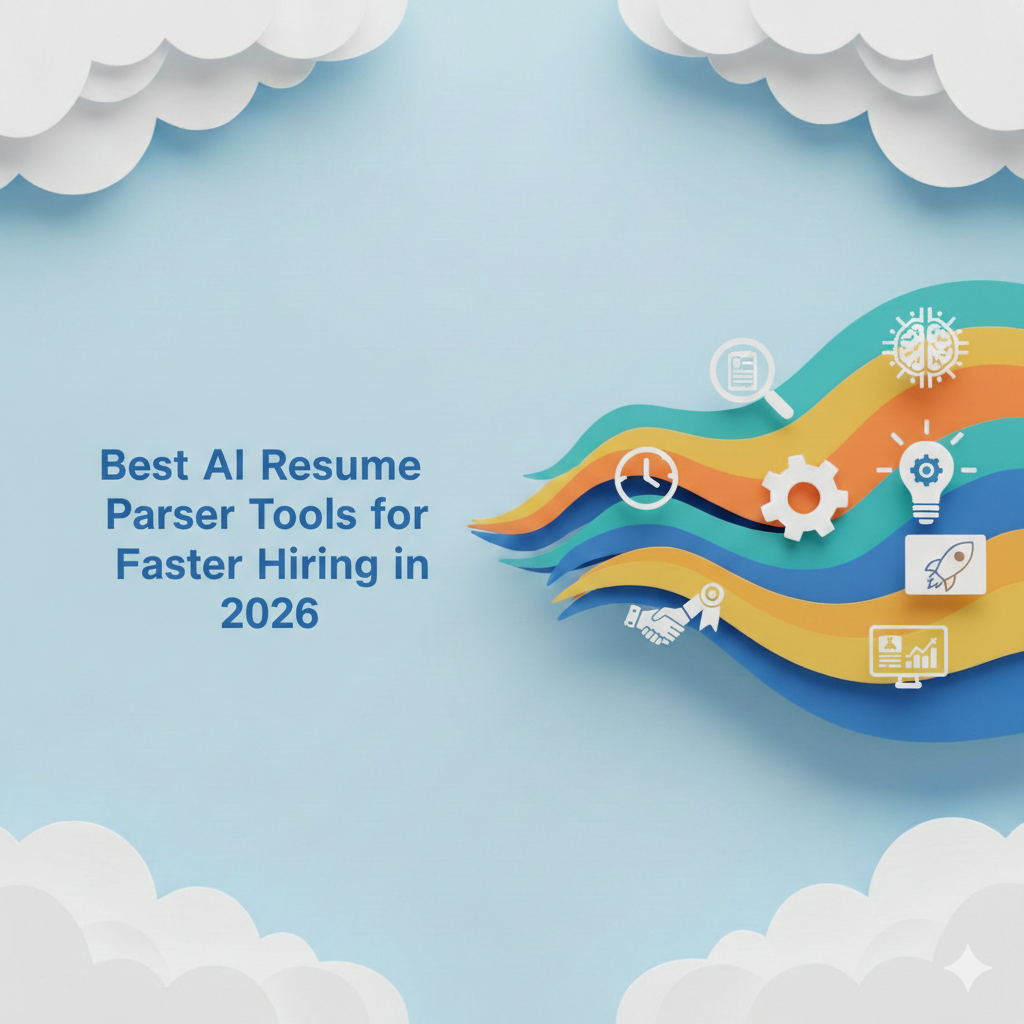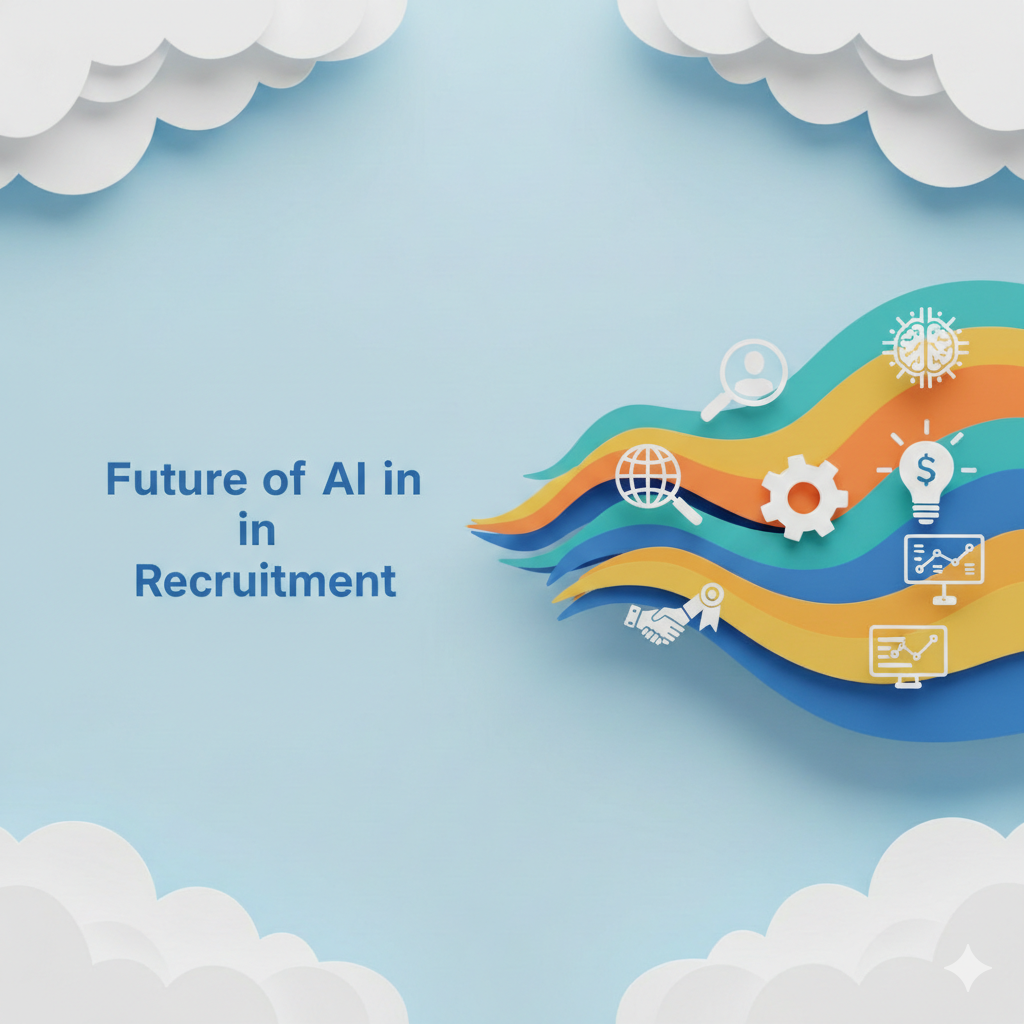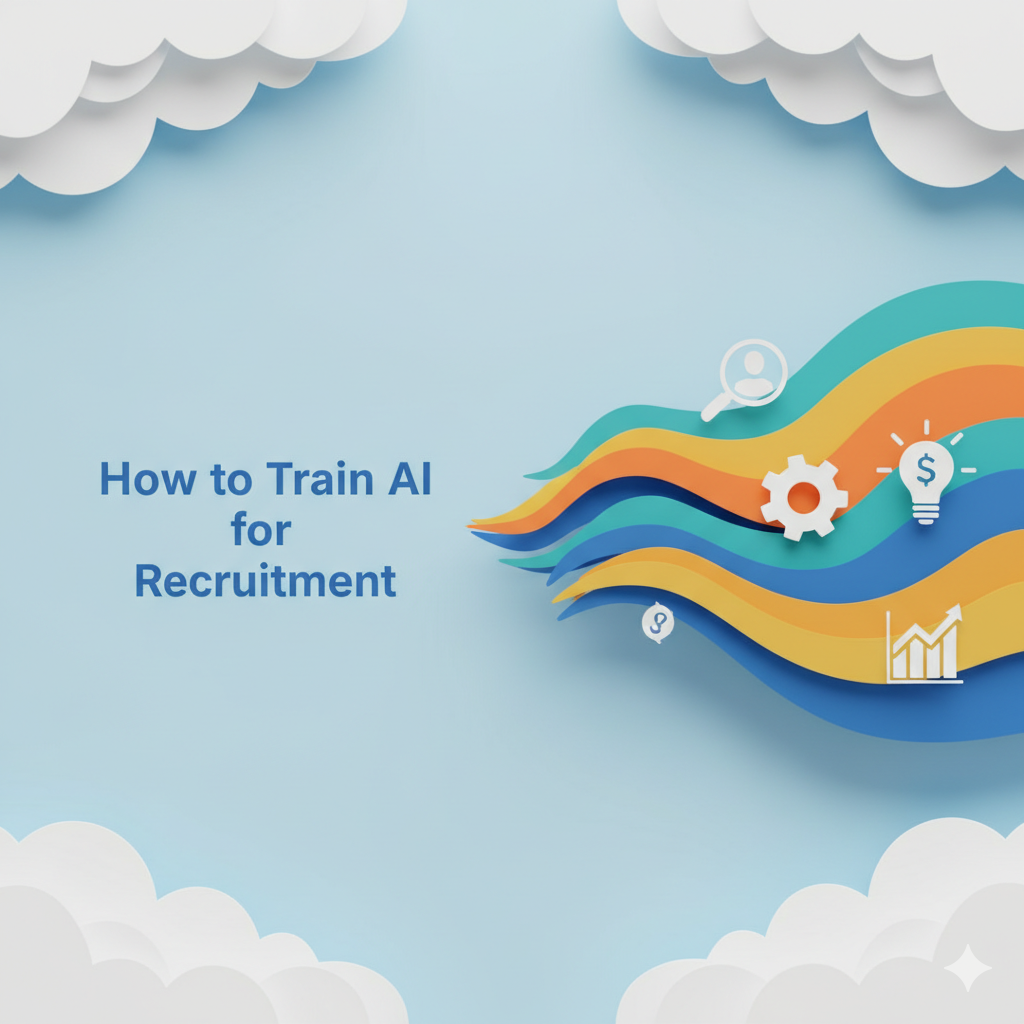AI Recruiting Assistant: Transforming Talent Acquisition Efficiency

Have you ever wished hiring could run smoothly without endless resume reviews and scheduling headaches?
That’s exactly what an AI recruiting assistant delivers. By automating tasks like resume screening, interview scheduling, and candidate communication, these tools save you time, reduce errors, and keep the process moving forward.
Instead of getting bogged down by repetitive work, you can focus on what really matters: choosing the right talent. With AI assistants, hiring becomes faster, fairer, and less prone to bias. Candidates stay engaged around the clock, ensuring fewer missed opportunities.
Platforms like HRMLESS use conversational AI to keep candidates connected while giving you real-time insights into every stage. You can easily spot bottlenecks, reduce ghosting, and rely on automated scoring to surface top candidates, cutting wasted effort in half.
In this blog, we will talk about:
- What an AI recruiting assistant is and how it works in practice
- The most significant benefits these tools bring to hiring teams
- How AI assistants help you scale recruitment without extra stress
Let’s explore how AI assistants are transforming modern recruitment into a smarter, faster, and more candidate-friendly process.
What Is an AI Recruiting Assistant?
An AI recruiting assistant is a digital tool that helps you speed up and improve your hiring process. It automates tasks like screening candidates, matching skills to job needs, and handling communication. This means you spend less time on routine work and more time on finding the right people.
Core Features of AI Recruiting Assistants
AI recruiting assistants offer several key features that make hiring easier and more efficient:
- Resume screening: They scan resumes fast to pick top candidates based on your criteria.
- Candidate ranking: AI scores applicants automatically, so you focus on the best fits.
- Automated outreach: They send emails or texts to keep candidates engaged and informed.
- Interview scheduling: These tools set up interviews without back-and-forth emails.
- Bias reduction: By using consistent data, AI helps remove human bias from decisions.
With our tool, powered by Nerva AI, you get these features, real-time analytics, and smooth ATS integration, saving you hours on each hire.
How AI Differs from Traditional Recruiting Tools
Unlike older software, AI recruiting assistants don’t just store data or track applicants. They actively analyze and learn from large amounts of information. Traditional tools rely on manual input and review, slowing hiring and letting errors slip in. AI assistants can:
- Process thousands of resumes instantly.
- Use natural language understanding to evaluate skills and experiences.
- Predict candidate success by comparing profiles to previous hires.
This means your hiring process is not just digital but smarter. You get faster, more accurate matches and fewer unqualified candidates.
Automation in Talent Acquisition
Automation with AI eliminates many repetitive steps in hiring. Instead of sifting through resumes yourself, AI does the pre-screening for you based on your rules. Every day, automated tasks include:
- Pre-screening interviews that candidates can complete at any time.
- Auto-sorting candidates by job fit scores.
- Scheduling interviews directly through messaging apps.
- Sending reminders to reduce no-shows.
By using automation, you reduce manual workload and speed up hiring cycles.
Benefits of AI Recruiting Assistants
AI recruiting assistants help you speed up hiring, reduce bias, and save resources. They handle many repetitive tasks, making your process smoother and more effective. With the right tool, you focus on the candidates who truly fit your needs.
Efficient Candidate Screening
Screening resumes takes a lot of time, but AI recruiting assistants can review hundreds of applications quickly. They scan resumes for skills, experience, and keywords that match your job description.
This means you get a shortlist of candidates who meet your requirements faster. AI tools like ours use pre-screening interviews to filter out less relevant candidates automatically. This ensures you spend time only on the best fits.
Automating this step reduces errors from manual review and improves hiring accuracy.
Bias Reduction in Hiring
AI recruiting assistants help reduce unconscious bias by focusing on skills and experience rather than personal details. They use data-driven algorithms to evaluate candidates without relying on names, ages, or backgrounds.
This approach promotes diversity and fairness in hiring. You get a candidate pool that is judged on merit alone. Our tool supports no-bias recruitment software to ensure every applicant has an equal chance, creating a more inclusive hiring process.
Cost and Time Savings
Automating repetitive tasks saves both time and money.
You don’t need to spend hours scheduling interviews or sending follow-up messages. AI recruiting assistants handle these operations 24/7, keeping candidates engaged automatically. Companies have seen up to a 62% reduction in hiring time using our tool.
You save about 2.7 hours per hire by cutting out manual scheduling and candidate filtering. This efficiency lets you fill roles faster without extra staff effort or cost.
Key Use Cases for AI Recruiting Assistants
AI recruiting assistants help you find the right candidates faster while cutting down on repetitive work. They handle sourcing, sorting resumes, and managing interview schedules. This lets you focus on choosing top talent rather than administrative tasks.
Sourcing Qualified Candidates
AI recruiting assistants scan large talent pools. They use smart filters and algorithms to find people who match your job requirements. This saves you time spent scrolling through unfit profiles. These tools look beyond simple keywords.
They understand skills and experience in context. This helps catch candidates who might be missed by traditional searches. Automated sourcing also reduces bias by applying consistent criteria to all applicants.
You get a diverse and qualified candidate list without extra effort.
Resume Parsing and Matching
AI can read and analyze resumes at high speed.
It extracts key details like education, work history, and skills, and compares this data against your job description. This matching process ranks candidates objectively.
You see who best fits the role without manual sorting. The AI also highlights essential qualifications and flags gaps automatically. Automating resume screening reduces errors and speeds up early hiring stages.
It means you spend less time on unqualified applicants.
Interview Scheduling
Scheduling interviews takes time and often causes delays.
AI recruiting assistants handle this task smoothly by coordinating calendars automatically. They send invites, confirm availability, and reschedule if needed. This keeps candidates engaged and reduces no-shows by ensuring interviews fit everyone's schedule.
You can also customize SMS or email reminders to keep candidates informed. This automated scheduling lets you fill slots faster and focus on interviewing, not managing calendars. HRMLESS offers tools like this, cutting hours from your hiring process while improving candidate experience.
How AI Recruiting Assistants Work
AI recruiting assistants handle many tasks to make hiring faster and fairer. They can read resumes, evaluate candidates, and even schedule interviews without human help. These tools use advanced technology to understand text and learn from data, improving their accuracy over time.
Natural Language Processing Applications
Natural Language Processing (NLP) helps AI assistants read and understand job descriptions, resumes, and candidate responses. It breaks down sentences and words to find skills, qualifications, and experience that match your job needs.
With NLP, the AI can screen candidates by comparing their resumes to your job post. It can also analyze emails and chat messages to keep candidates engaged. This means less time spent on manual reading and more time on qualified applicants. NLP-powered chatbots can answer candidates’ questions instantly, improving their experience.
They also help reduce ghosting by keeping the conversation flowing until the right moment to schedule interviews.
Machine Learning in Candidate Evaluation
Machine learning lets AI recruiting assistants get smarter over time.
It studies patterns from previous hires, such as who performed well or stayed long. This data helps score new candidates based on their likely success in your role. The AI ranks applicants by skills, experience, and fit, placing top contenders at the front.
This saves you hours by allowing you to focus only on the most promising profiles. Our tool's machine learning powers automated pre-screening and scoring, so you never miss a strong candidate. It helps reduce bias by judging candidates on qualifications, not irrelevant factors.
This speeds hiring and improves candidate quality through data-driven decisions.
Implementation Strategies
To get the most from an AI recruiting assistant, focus on how it connects with your current HR tools and how well it can grow with your hiring needs. Proper integration and customization make AI recruiting smooth and effective, saving time and improving candidate quality.
Integrating With Existing HR Systems
Your AI assistant should work seamlessly with your ATS and HRIS. This creates a smooth data flow and avoids extra work. Look for tools that automatically sync candidate information, status updates, and scheduling across platforms.
Integration benefits include:
- Reduced manual entry: No double work updating candidate records.
- Faster decision-making: Real-time data keeps hiring managers informed.
- Fewer errors: Automated transfers cut down on lost or incorrect info.
Our tool, for example, offers easy ATS integration and supports SMS engagement to keep candidates involved. Choose AI tools with open APIs or pre-built connections to fit your unique system setup. This minimizes disruption and helps hiring teams focus on selecting the best talent.
Customization and Scalability
Your AI recruiting assistant should adapt to your company’s size and hiring style. Customization means you can tailor screening questions, scoring rules, and engagement messages to match your job roles and brand voice.
Scalability ensures the system handles more openings or candidates as your business grows without slowing down. Key points to check:
- Adjustable workflows: Change steps as your needs evolve.
- Configurable scoring models: Prioritize different candidate traits.
- Flexible communication channels: Use email, SMS, or chatbots depending on your audience.
Using our tool, you can effortlessly scale from a few roles to hundreds. Automated scheduling and candidate nudges reduce no-shows, helping you hire faster even during busy periods. Customize your AI assistant to keep processes efficient, fair, and focused on quality hires.
Challenges and Limitations
AI recruiting assistants offer many benefits, but come with essential challenges you should understand. These include protecting candidate data and avoiding unfair hiring decisions. Addressing these concerns is key to using AI tools effectively.
Data Privacy and Security Concerns
When you use AI recruiting assistants, candidate data like resumes, interview answers, and contact details are collected and stored. This makes data privacy a critical issue. You must ensure this sensitive information is protected from unauthorized access or breaches, and compliance with laws like GDPR or CCPA is essential.
You need clear policies about how candidate data is used and shared. Strong data encryption, secure servers, and strict access controls are basic requirements. Also, consider how long you retain candidate data. Storing information longer than needed can increase risk.
Transparency with candidates about data handling builds trust. Using tools like ours, which prioritize security and legal compliance, helps you minimize these risks while automating recruitment.
Potential for Algorithmic Bias
AI recruiting assistants use algorithms trained on past hiring data.
If this data contains bias, the AI can learn and repeat those biases. This might unfairly favor or exclude candidates based on age, gender, ethnicity, or other factors. You should regularly review and test your AI tools to catch bias early.
Use diverse data sets for training and monitor outcomes for unfair trends. Balancing AI decisions with human judgment reduces risk. Bias can also come from unclear criteria or missing information. Defining transparent hiring standards and combining AI scoring with recruiter insight make selections fairer.
Platforms like ours are designed to lower bias by automating scoring and engagement consistently across candidates, helping you make hiring decisions based on skills and fit.
Future Trends in AI Recruiting
AI is changing how you find and hire talent by making tasks faster and more accurate. New tools focus on personalized candidate experiences, freeing HR professionals to focus on strategy and human connection.
Emerging Technologies in Recruitment
You will see AI tools doing more than just screening resumes.
Hyper-personalization will tailor job matching based on skills and preferences. Immersive assessments, like virtual reality tests, will let you evaluate real-time candidate skills. AI assistants can automate scheduling, scoring, and candidate follow-ups 24/7, reducing delays and no-shows.
Tools will integrate smoothly with your ATS, so your process is seamless. Voice engagement will soon let candidates speak naturally during AI interviews, adding a human feel. Using platforms like ours, you can save time by automating repetitive tasks while keeping quality high.
Expect tools to reduce bias by focusing on data, not demographics, improving fairness and diversity.
Evolving Role of HR Professionals
With AI handling routine tasks, your role will shift towards strategy and personal engagement.
You can spend more time building relationships with candidates and hiring managers. AI frees you from manual screening, allowing you to focus on interviews and team fit. HR professionals will become more data-driven, using real-time analytics to spot process bottlenecks and improve hiring outcomes.
You’ll use AI insights to make smarter decisions about candidate quality and hiring speed. Instead of replacing HR, AI tools act as a partner that increases your productivity. This means bigger hiring goals without scaling stress.
Platforms like ours ensure that automation supports your workflow while keeping candidates engaged and informed.
Wrapping It Up
An AI recruiting assistant isn’t about replacing recruiters; it’s about giving you the tools to work smarter.
By automating resume screening, scheduling, and candidate engagement, these platforms remove the stress of repetitive tasks and let you focus on building meaningful connections. With features like real-time insights, conversational AI, and bias reduction, tools such as HRMLESS make hiring faster, fairer, and more reliable.
The future of recruitment belongs to teams that combine human judgment with AI efficiency.
Start your free trial or book a demo with HRMLESS today, and experience how effortlessly you can scale hiring while keeping quality and candidate satisfaction high.
Frequently Asked Questions
Still curious about how AI recruiting assistants actually fit into your hiring process?
Here are some common questions recruiters often ask when exploring AI-driven tools. These answers add clarity and give you insights beyond what we’ve covered in the blog.
Can AI recruiting assistants help improve candidate retention?
Yes. AI assistants create a smoother experience by engaging candidates with timely updates and personalized communication. This positive journey makes candidates more likely to accept offers and stay longer once hired, improving overall retention rates.
How do AI assistants support high-volume hiring drives?
AI tools can scan thousands of resumes, schedule interviews, and send automated nudges simultaneously. This makes it possible to handle seasonal spikes or large-scale hiring campaigns without overwhelming recruiters, while ensuring candidate quality isn’t compromised.
Do AI assistants integrate with video interviewing platforms?
Many AI assistants integrate directly with video platforms, letting candidates complete interviews anytime. They handle scheduling and reminders and even capture responses for scoring. This eliminates delays, reduces no-shows, and makes video interviews seamless for both recruiters and candidates.
How do AI assistants improve communication with passive candidates?
AI can identify and reach out to passive candidates through personalized emails or SMS. By nurturing these connections with reminders and updates, assistants keep potential hires warm, even if they aren’t actively applying.
Are AI recruiting assistants helpful for global hiring?
Absolutely. They operate 24/7 across time zones, send automated reminders, and support multilingual communication. This ensures candidates worldwide stay informed and engaged, making global recruitment campaigns more efficient and inclusive without adding extra recruiter workload.
Featured
Subscribe to ournewsletter
Related posts
Explore the world of photography with our curated selection of
portfolio websites that showcase creativity and innovation.




